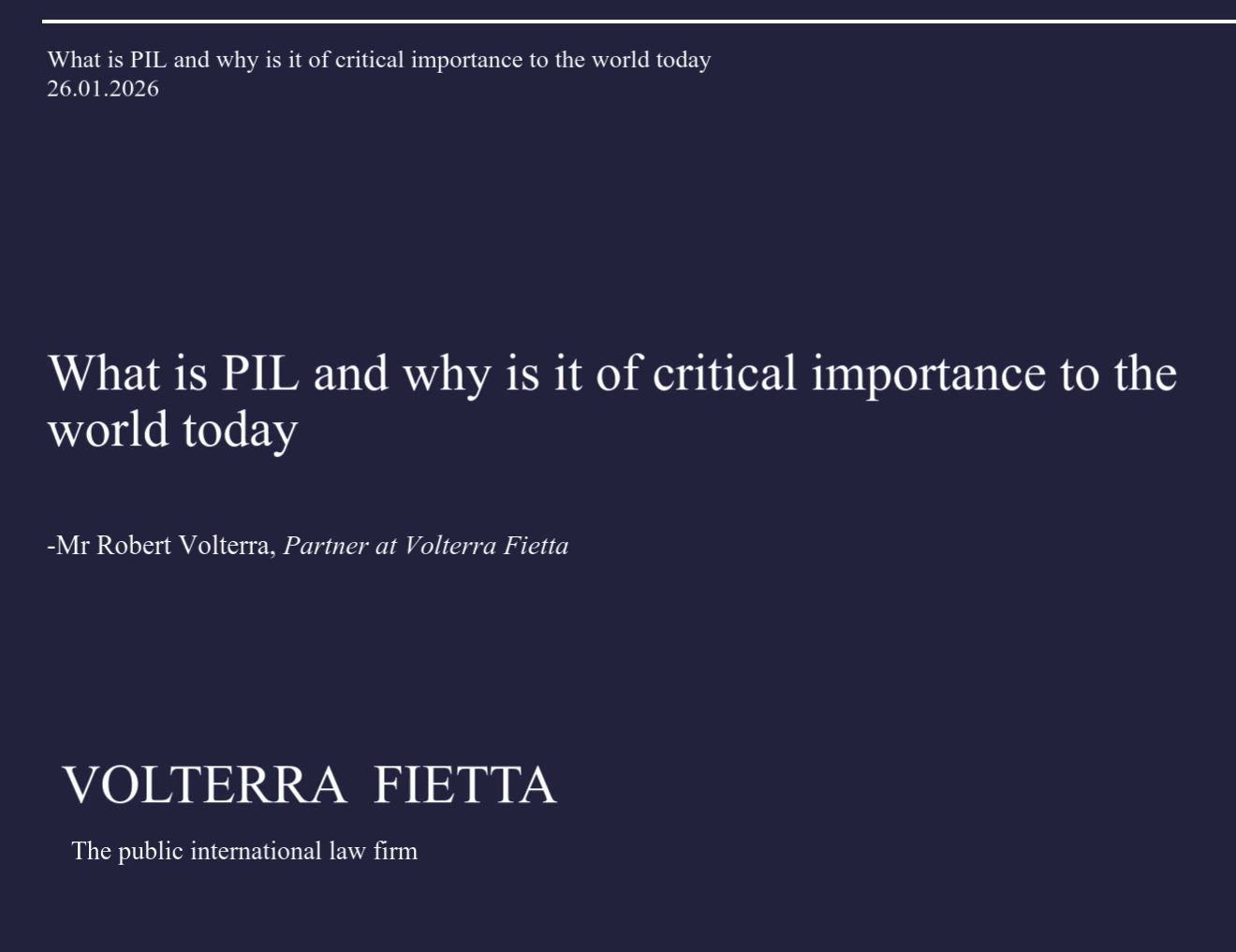More Client Alerts

We are excited to share the first instalment of the “Volterra Fietta PIL commentaries” podcast series
We are excited to share the first instalment of the “Volterra Fietta PIL commentaries” podcast series. In each podcast, a Volterra Fietta partner will explain an international legal issue in an easily-digestible, bite-size segment. The series will support informed decision-making, risk assessment and strategic planning for those acting for, against or with States. The opening instalment
Learn more
VOLTERRA FIETTA’S NEW CASES IN 2025 EXCEED USD 40 BILLION IN CLAIMS VALUE
Over the past year, Volterra Fietta was hired by clients in multiple new, complex and ground-breaking disputes before international and domestic courts and tribunals. For those new cases which involve a precise damages figure (for example, not counting boundary disputes at the International Court of Justice), the combined total claim value exceeds USD 40,000,000,000 (forty
Learn more
Volterra Fietta’s new partner-led commentary series on Public International Law
Volterra Fietta is pleased to announce the launch of “Volterra Fietta PIL commentaries” a new monthly commentary series by the partners of the firm, beginning Monday, 26 January. The series will present perspectives of seasoned public international law professionals with unique practical experience advising and representing clients. The partners will address selected concepts, principles, and
Learn more
Volterra Fietta is pleased to announce that it has received a record number of accolades in the year 2025
These include: In addition, Volterra Fietta has once again been ranked Band A/Tier 1 for Public International Law by both Chambers & Partners and the Legal 500. Robert Volterra’s practice, including at Volterra Fietta, has maintained these top rankings for almost 30 years. Volterra Fietta has also been highly ranked for International Arbitration by both
Learn more